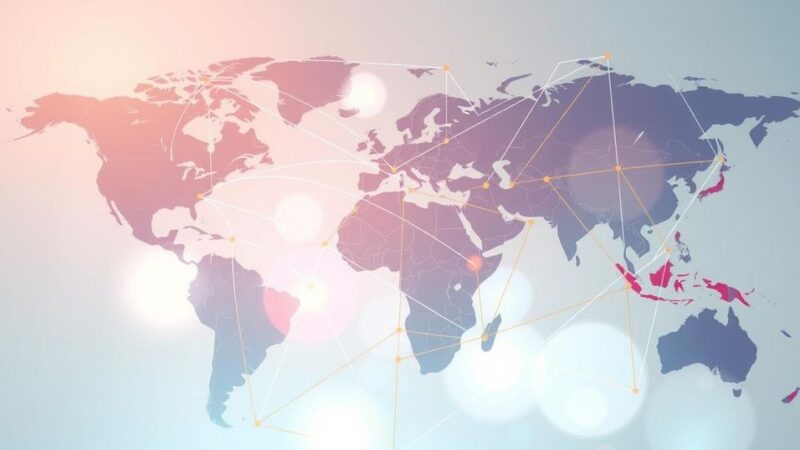Recent U.S. executive orders are reshaping international relations by withdrawing support from UN agencies. In Sudan, escalating violence leads to substantial child casualties. WHO warns of rising breast cancer deaths in Africa without action. Tunisia faces human rights challenges related to activist detainment, while Chad and Nigeria sign a refugee repatriation agreement to ensure safety and dignity for displaced persons.
The recent executive orders from the White House are poised to significantly alter the United States’ relationship with the United Nations. Following the U.S. exit from the World Health Organization, President Trump has announced that the U.S. will cease its participation and financial backing of the Human Rights Council and will conduct a review of membership in UNESCO. Additionally, the order specifically targets UNRWA, asserting that the agency has been compromised by terrorist affiliations and terminating U.S. funding.
In Sudan, a tragic escalation of violence has led to the deaths of at least 40 children over the course of three days amid widespread shelling. The United Nations Children’s Fund (UNICEF) reports that the ongoing conflict has resulted in numerous civilian casualties, including the destruction of essential health facilities. UNICEF’s representative in Sudan emphasizes the dire situation for children, advocating for adherence to international humanitarian law to protect vulnerable populations.
The World Health Organization (WHO) has issued a stark warning regarding breast cancer in sub-Saharan Africa, predicting that 135,000 women could die from preventable causes by 2040 without urgent action. A WHO study identifies severe deficiencies in healthcare resources, including a critical lack of healthcare workers and screening programs. The organization underscores the need for significant investment in healthcare to address the rising incidence and mortality rates of breast cancer in the region.
In Tunisia, independent human rights experts have called for the immediate release of activist Sihem Bensedrine, who is currently in intensive care following a hunger strike. Ms. Bensedrine, previously the president of the Truth and Dignity Commission, has been detained since August 2022, a situation the experts believe retaliates against her advocacy work. They highlight her significant contributions to human rights investigations as reasons for her immediate release and state that commission members should not be held liable for the report’s findings.
Chad and Nigeria have collaborated with the UN High Commissioner for Refugees (UNHCR) to sign an agreement facilitating the voluntary repatriation of Nigerian refugees from Chad. This tripartite agreement establishes a framework to ensure that the process is conducted safely and respectfully, focusing on the protection and dignity of refugees. The commitment reflects a broader regional initiative aimed at enhancing cooperation on refugee rights and solutions to displacement.
The article covers multiple key global issues impacting human rights, health, and regional stability. It discusses the ramifications of U.S. policies on international organizations, the grave humanitarian crisis in Sudan affecting children, preventable health crises in Africa, Tunisia’s political climate concerning human rights activism, and the collaborative efforts for refugee repatriation between Chad and Nigeria. Each section highlights the interconnectedness of global governance, human rights, health crises, and the safety of vulnerable populations.
In summary, the evolving U.S. stance on international organizations is likely to provoke changes in global cooperation and human rights advocacy. Meanwhile, the dire situation in Sudan calls for urgent humanitarian intervention, and WHO’s warning regarding breast cancer underscores the urgent need for healthcare improvement in Africa. The plight of human rights activists in Tunisia and refugee repatriation efforts demonstrate the ongoing challenges faced across various regions, highlighting the need for global solidarity.
Original Source: news.un.org






